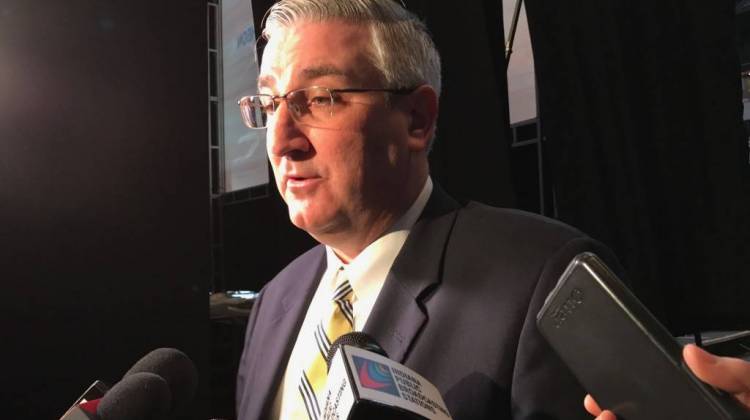
Gov. Eric Holcomb (R-Indiana) says changes to the federal health care bill helped fuel his support.
Brandon Smith/IPBGovernor Eric Holcomb says he’s backing the federal health care reform bill after expressing concerns about the measure only last week.
A week ago, Holcomb said he was concerned about the repeal of Obamacare’s Medicaid expansion in the GOP’s health-care reform bill. The expansion dollars fund Indiana’s HIP 2.0 program. Holcomb said he wanted all those currently receiving coverage to continue getting it.
Holcomb has since sent a letter to members of Indiana’s congressional delegation expressing his support for the Republican health care bill.
“The more flexibility, the more control that we have over cost and accessibility, the better. And so I’m asking Washington, trust the states, trust Indiana. We’ll deliver,” Holcomb says.
Holcomb says recent changes to the bill – including one to give states more flexibility in how they spend Medicaid dollars – helped fuel his support.
The bill still eliminates HIP 2.0’s funding in the future. But Holcomb says he wanted Congress to know he’s willing to work on the reform effort.
“I didn’t want to sit out on the first step and that’s what I’m trying to stress here, is this is the first step,” Holcomb says.
More than 400,000 Hoosiers are currently enrolled in HIP 2.0.
 DONATE
DONATE









 Support WFYI. We can't do it without you.
Support WFYI. We can't do it without you.